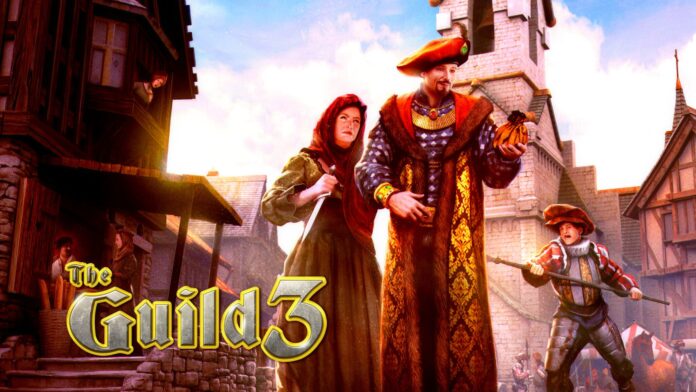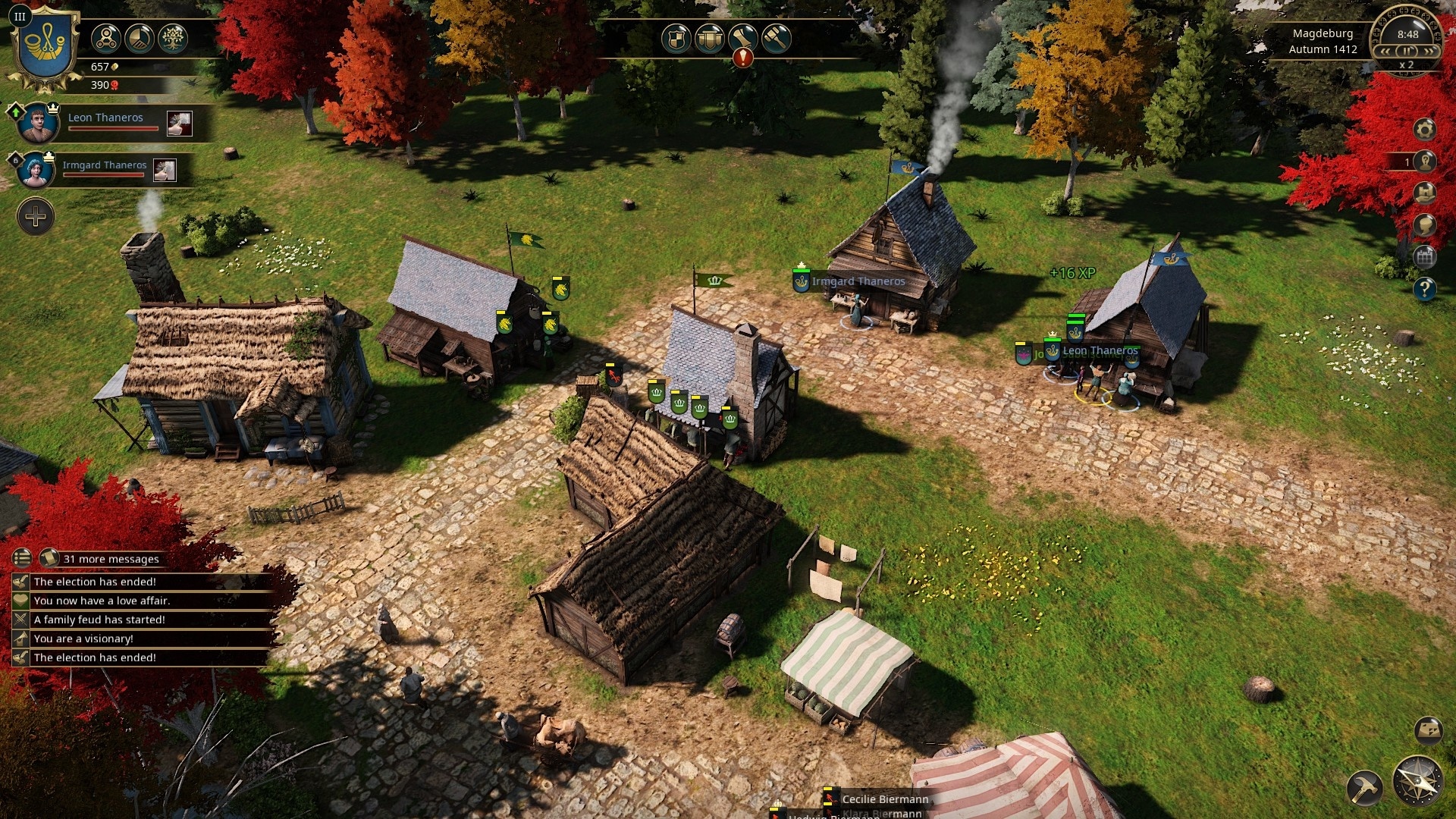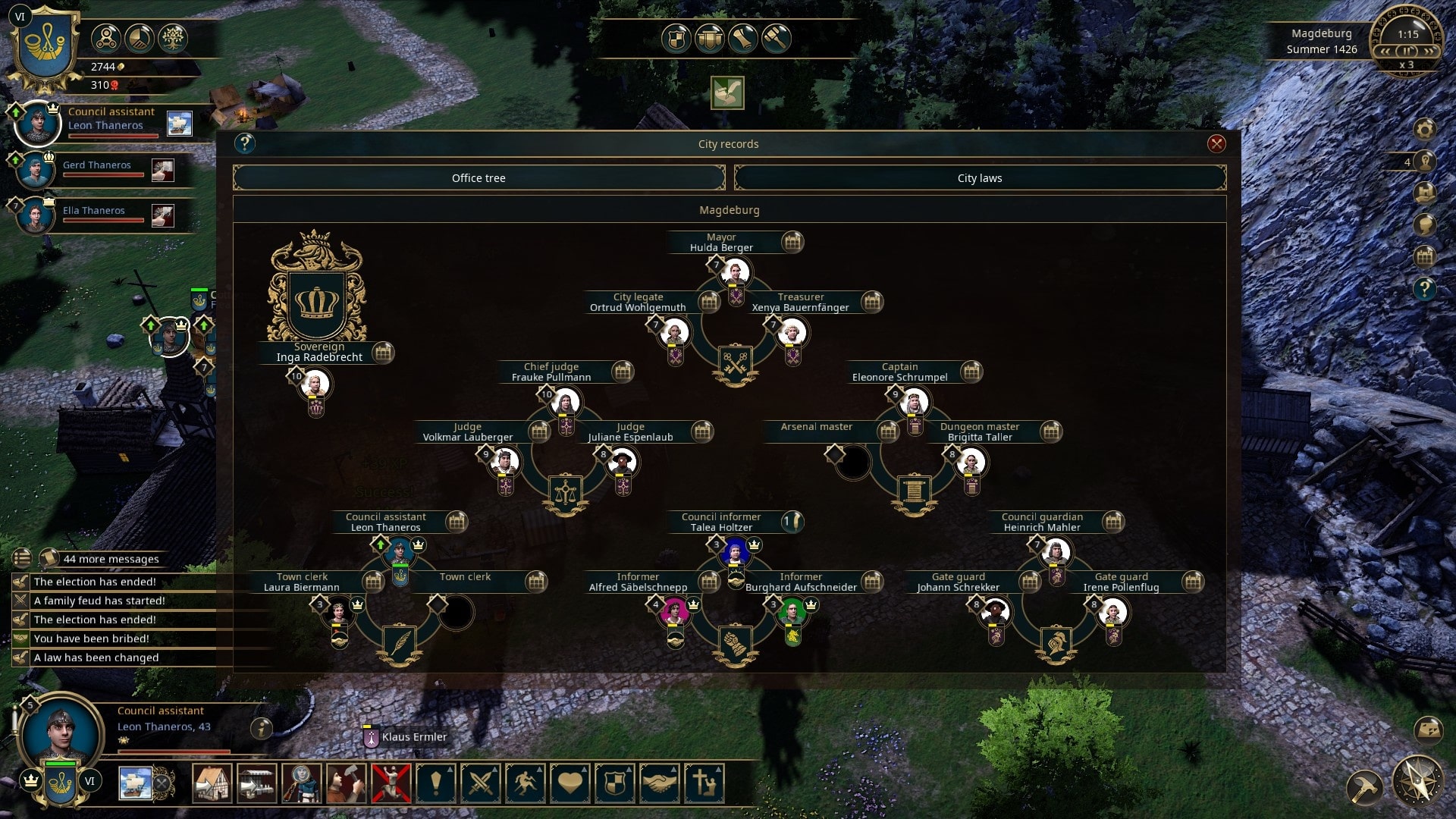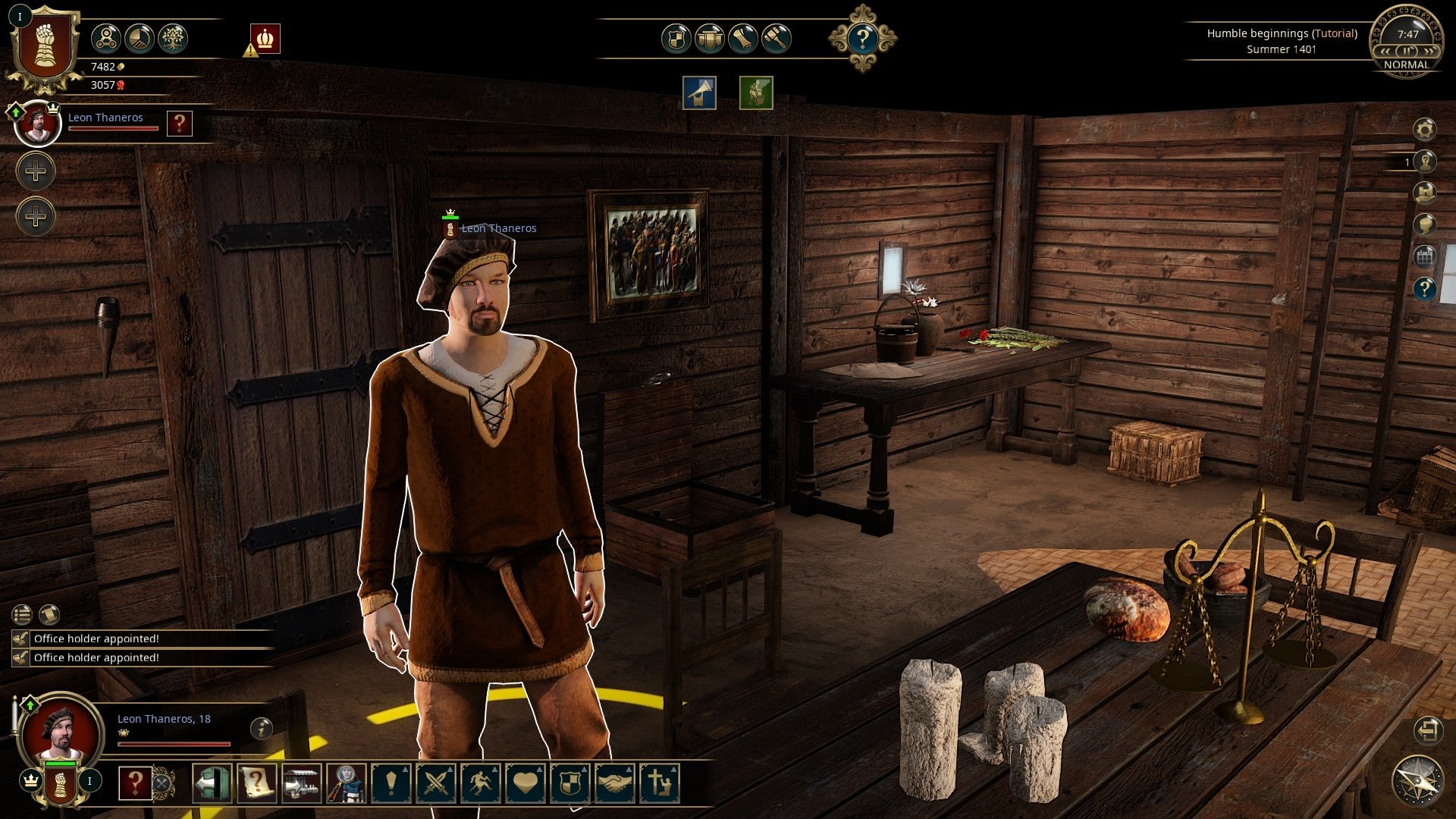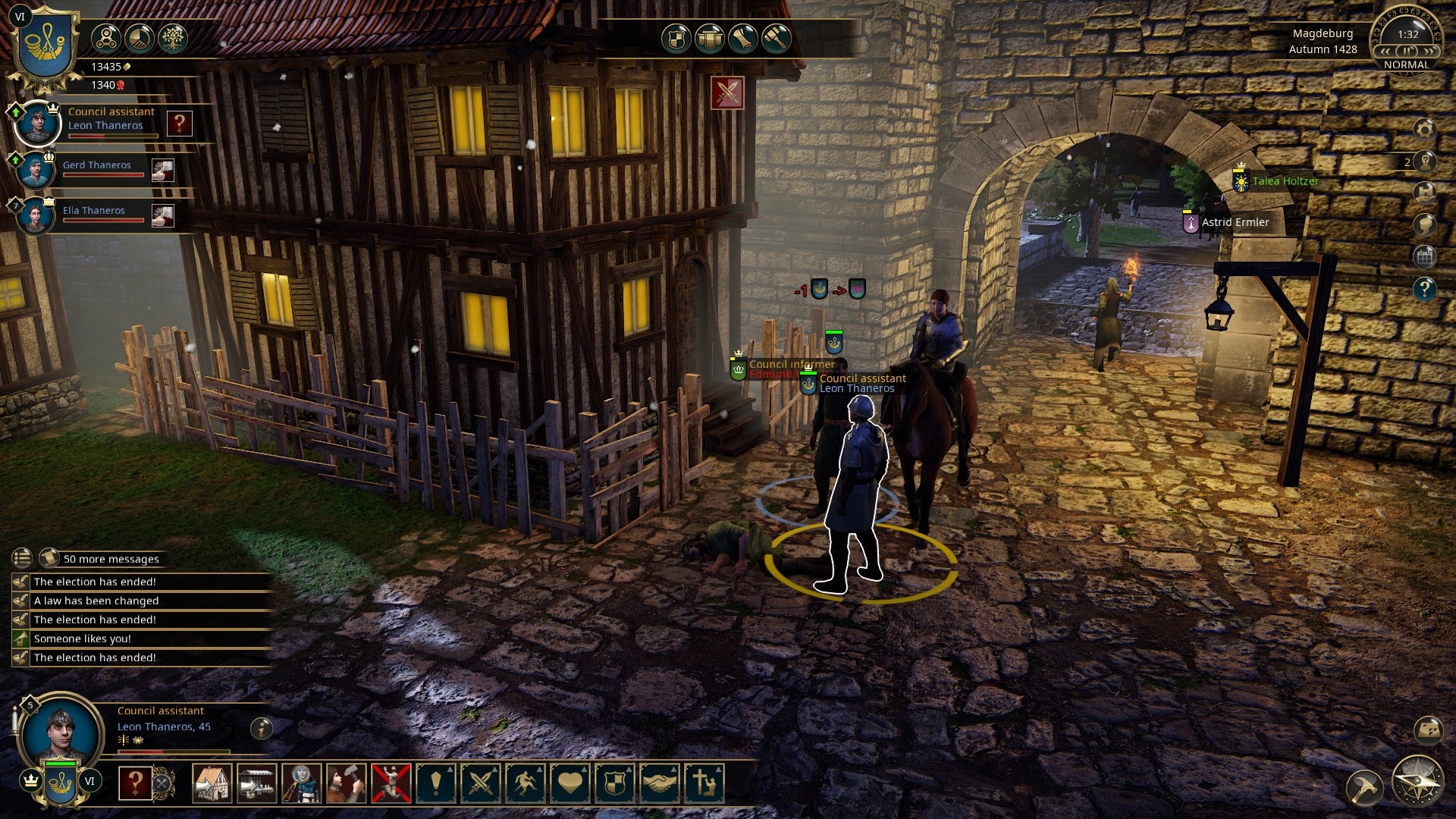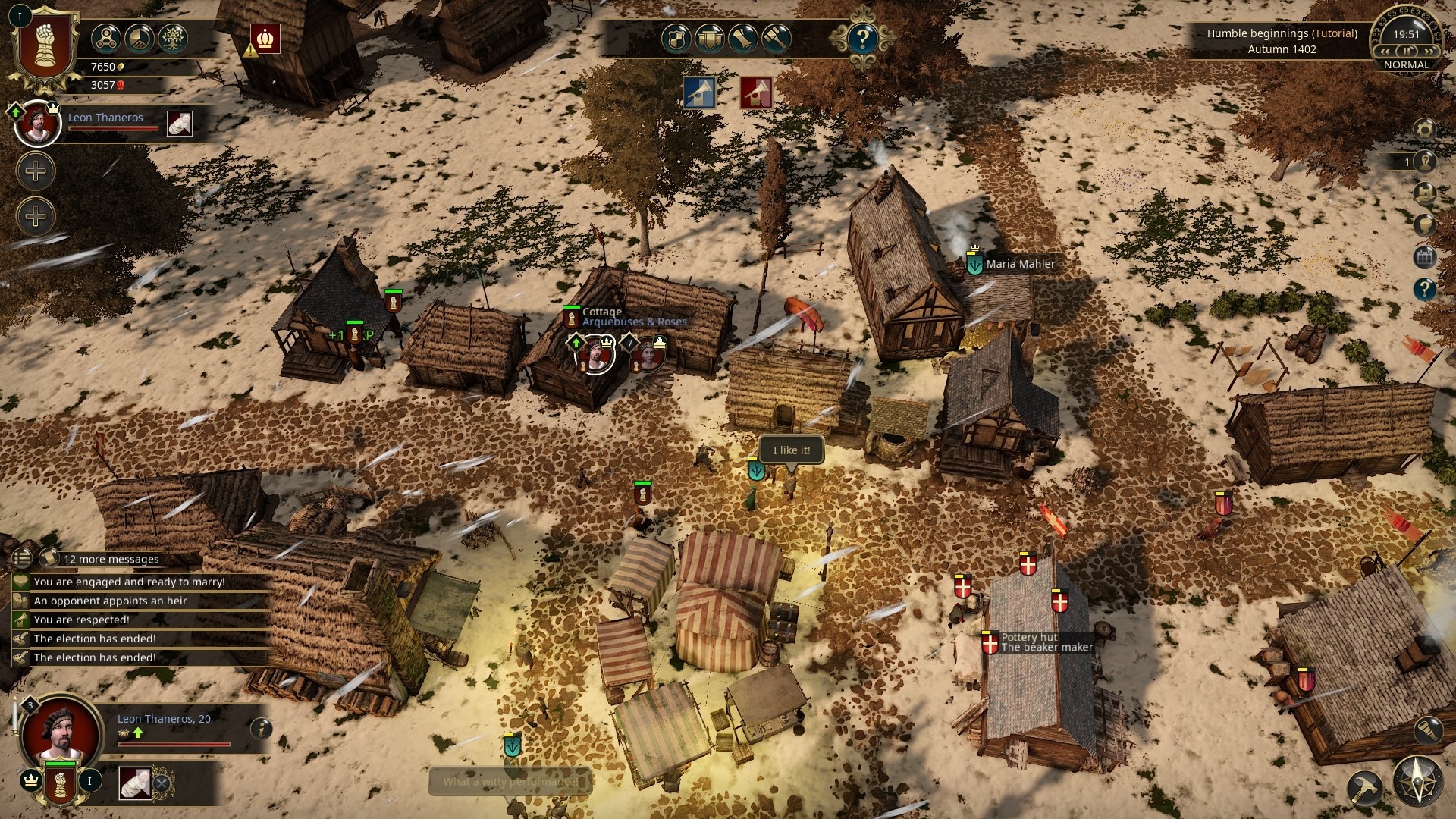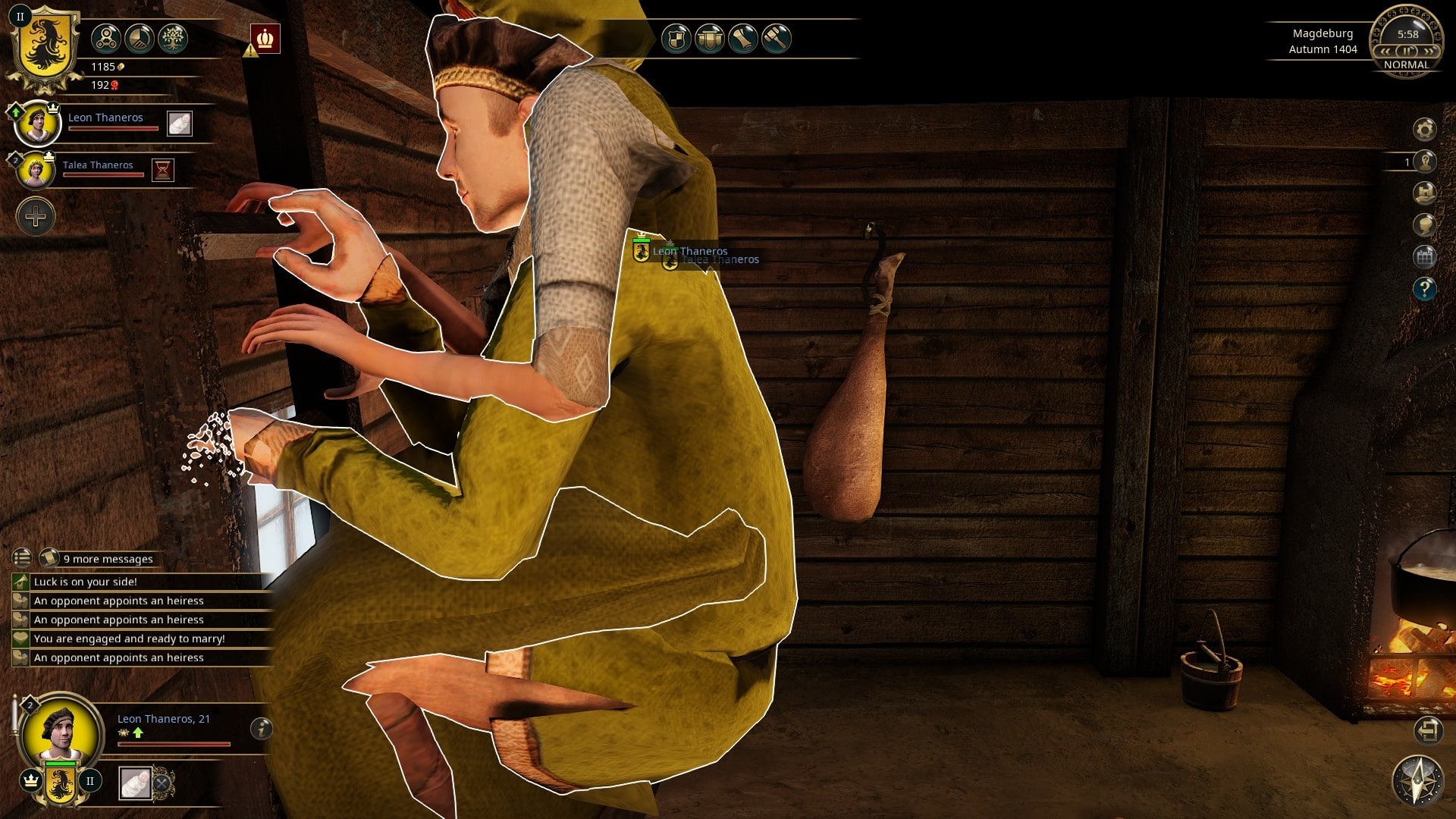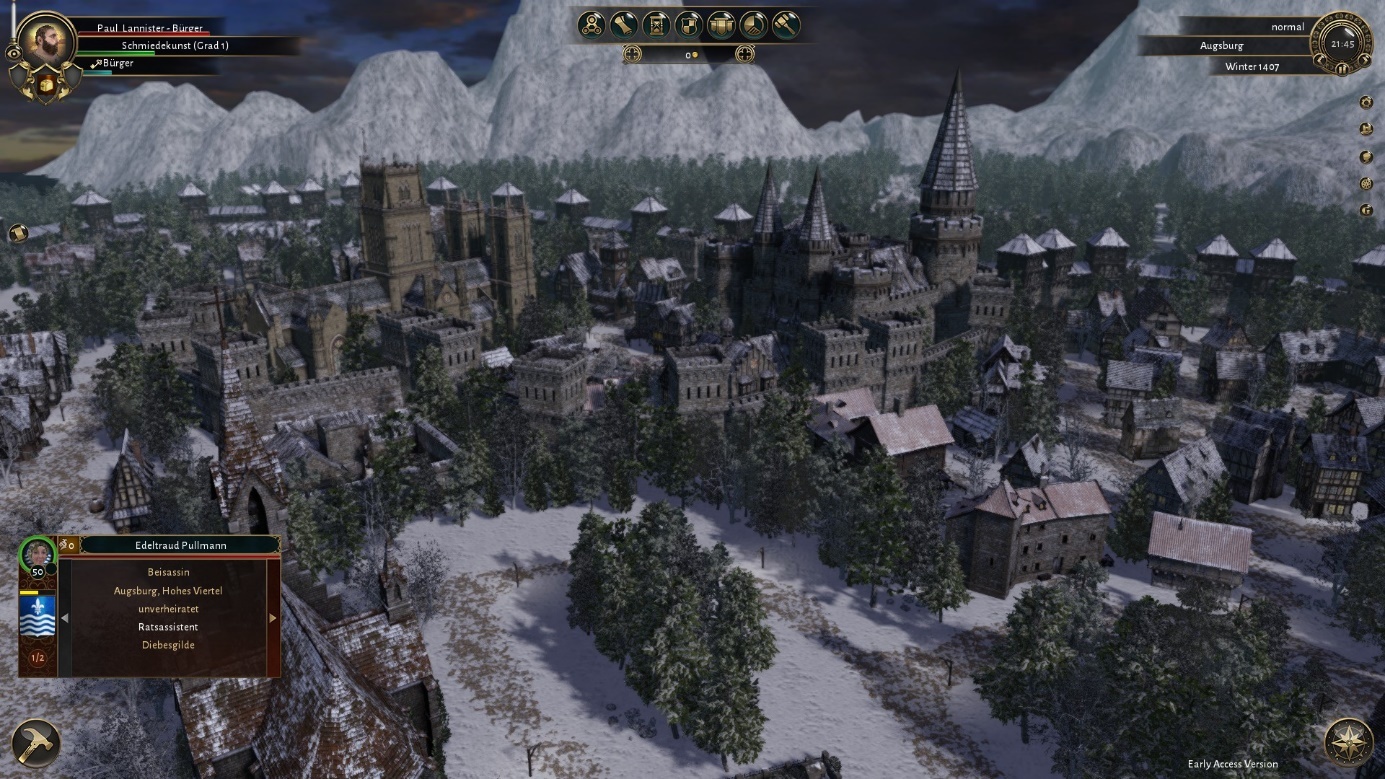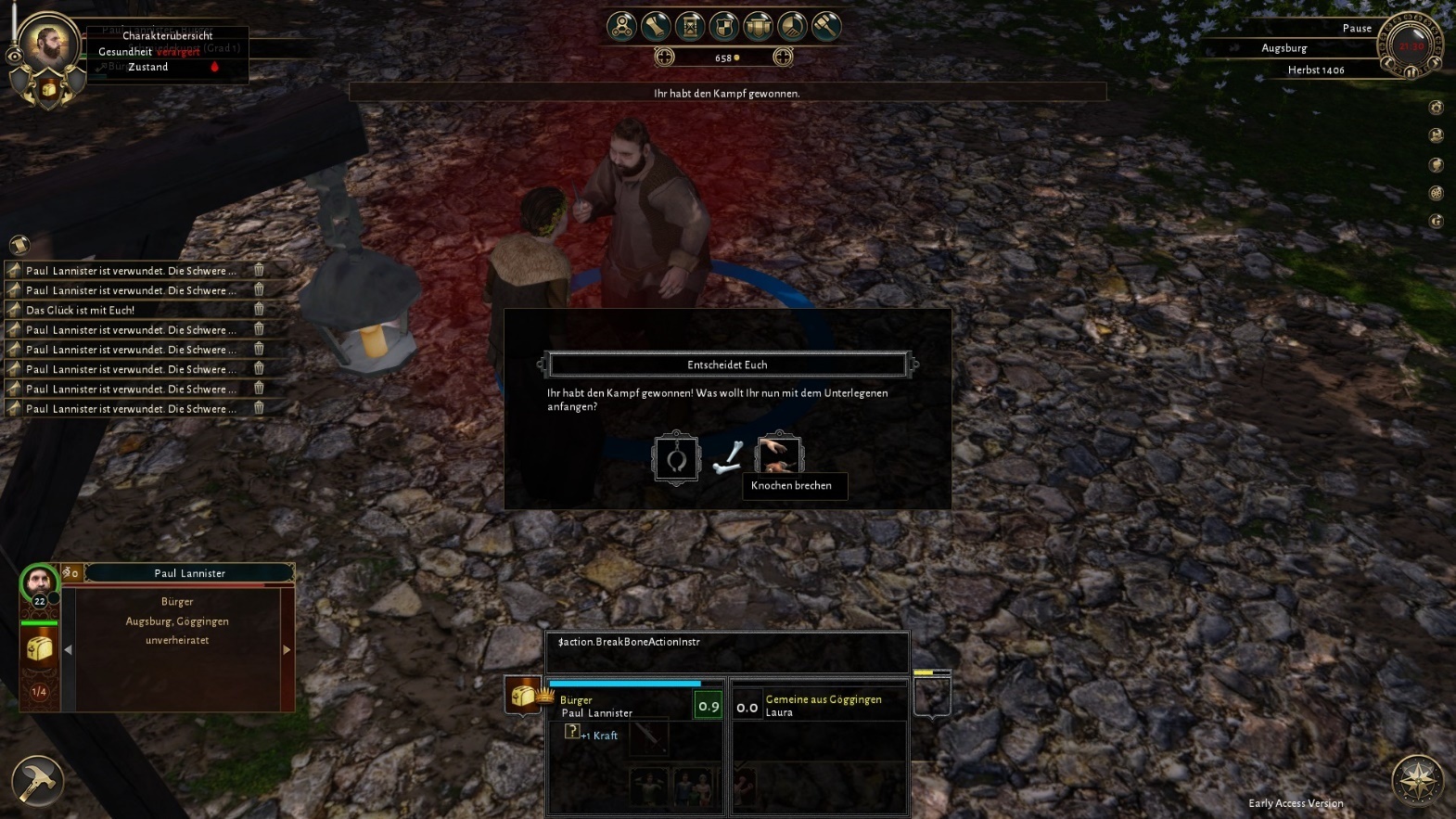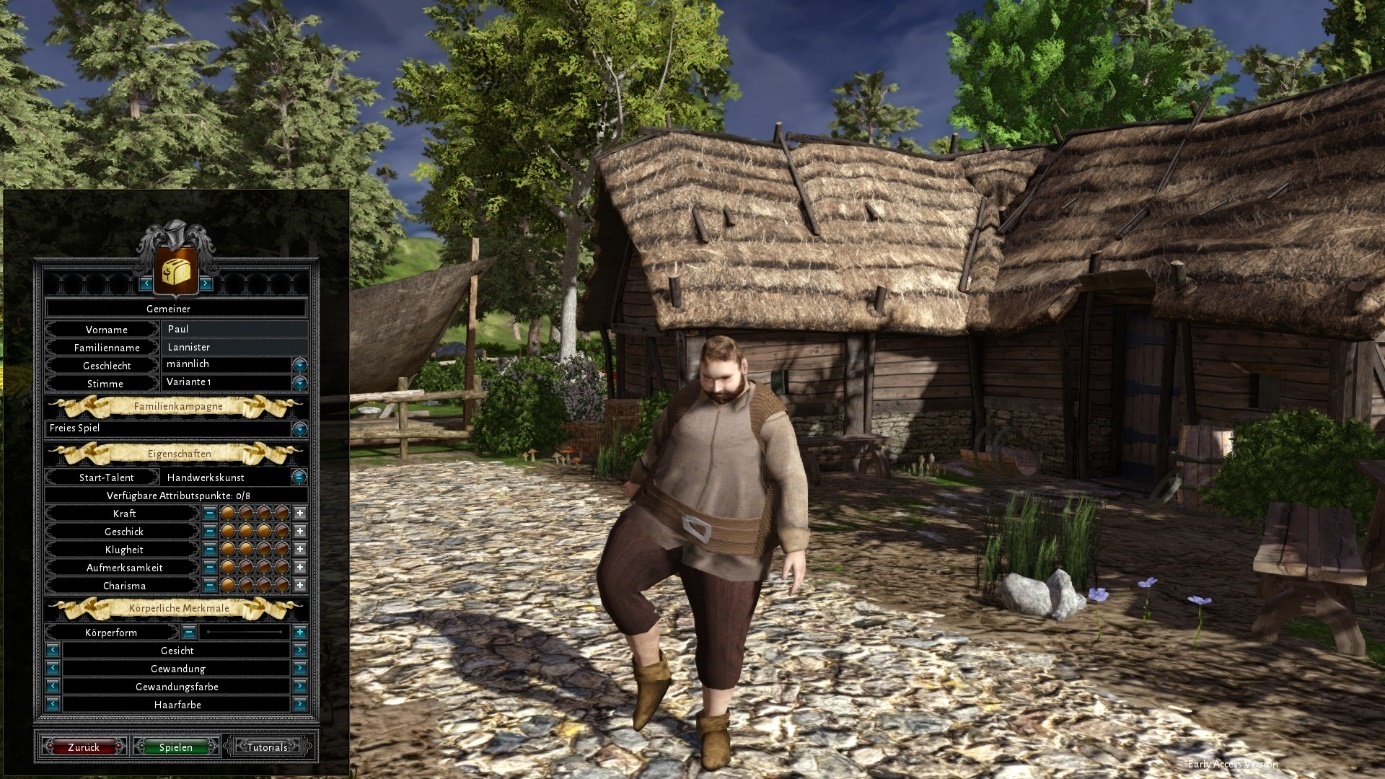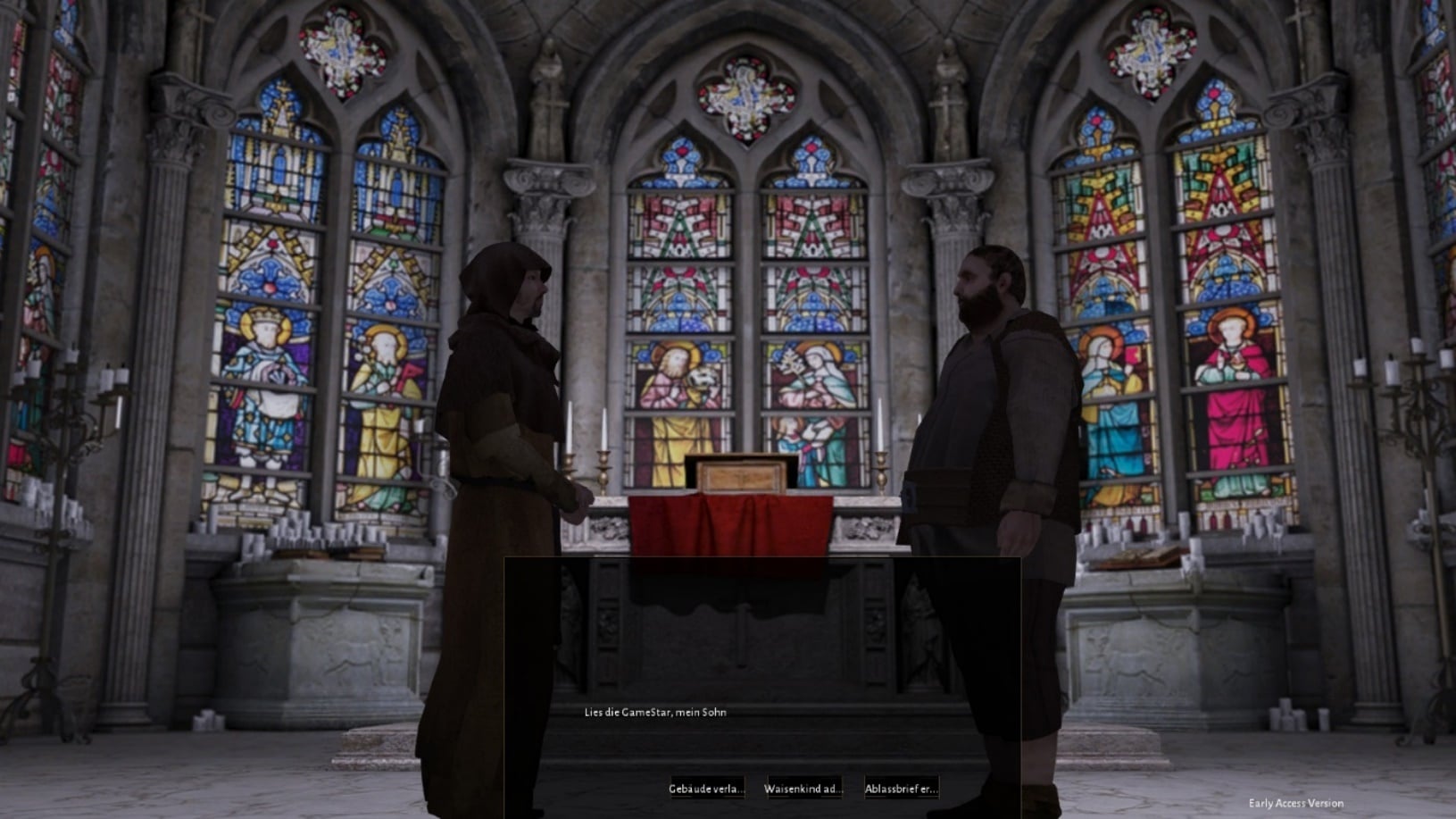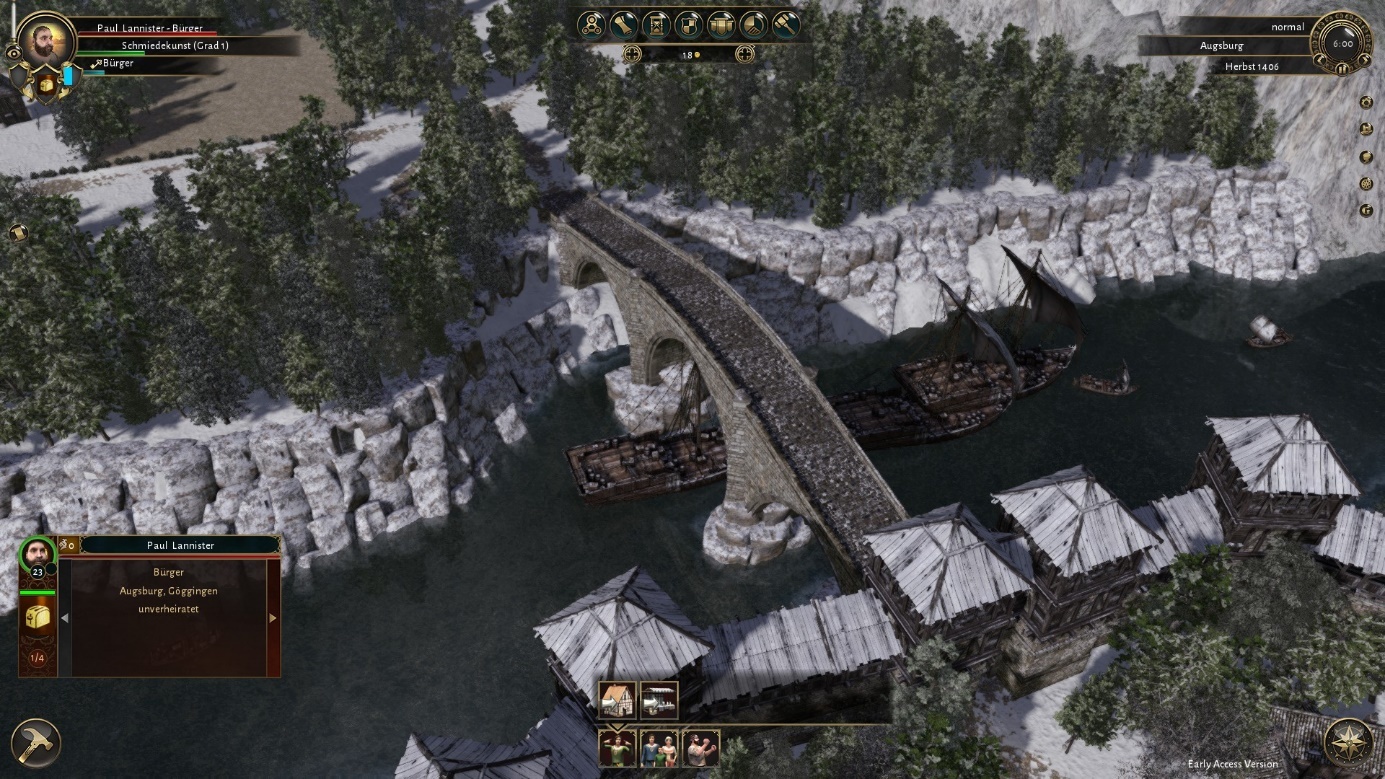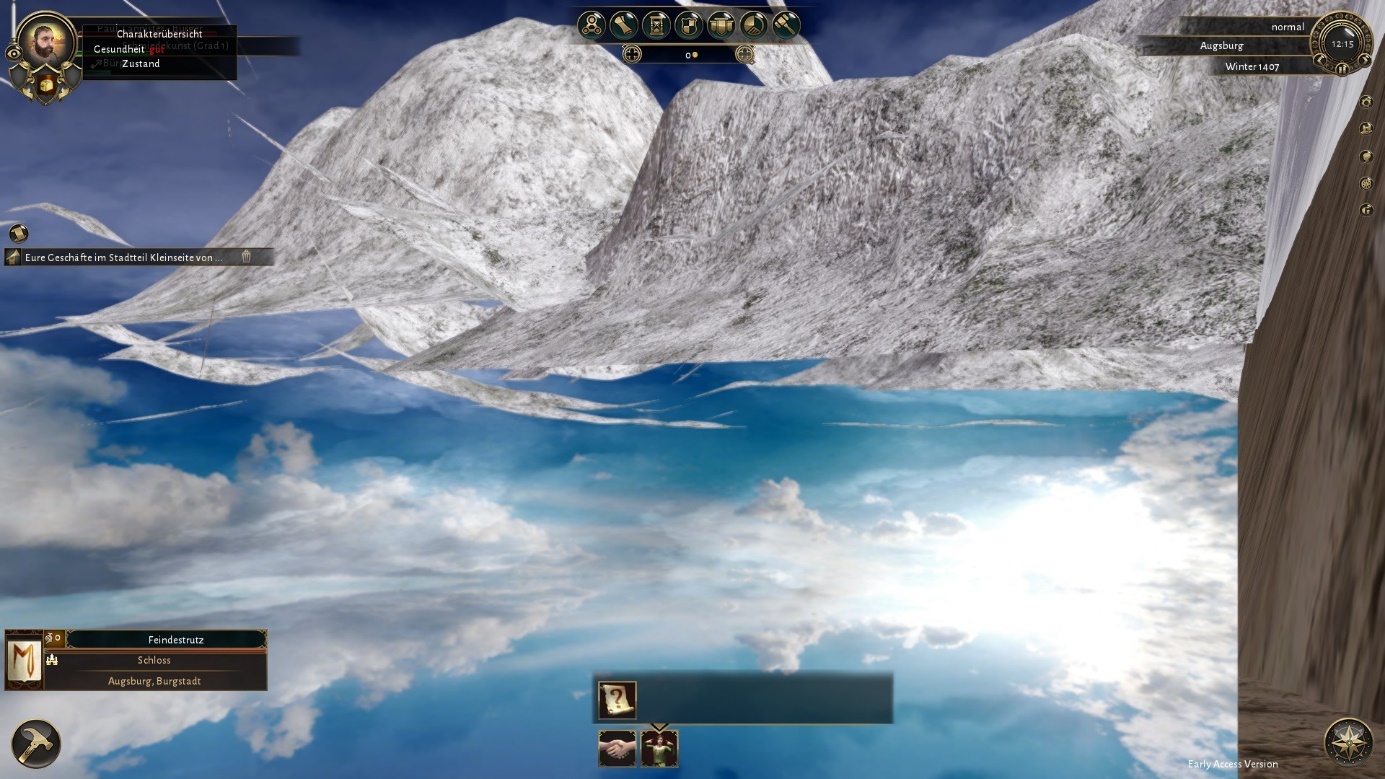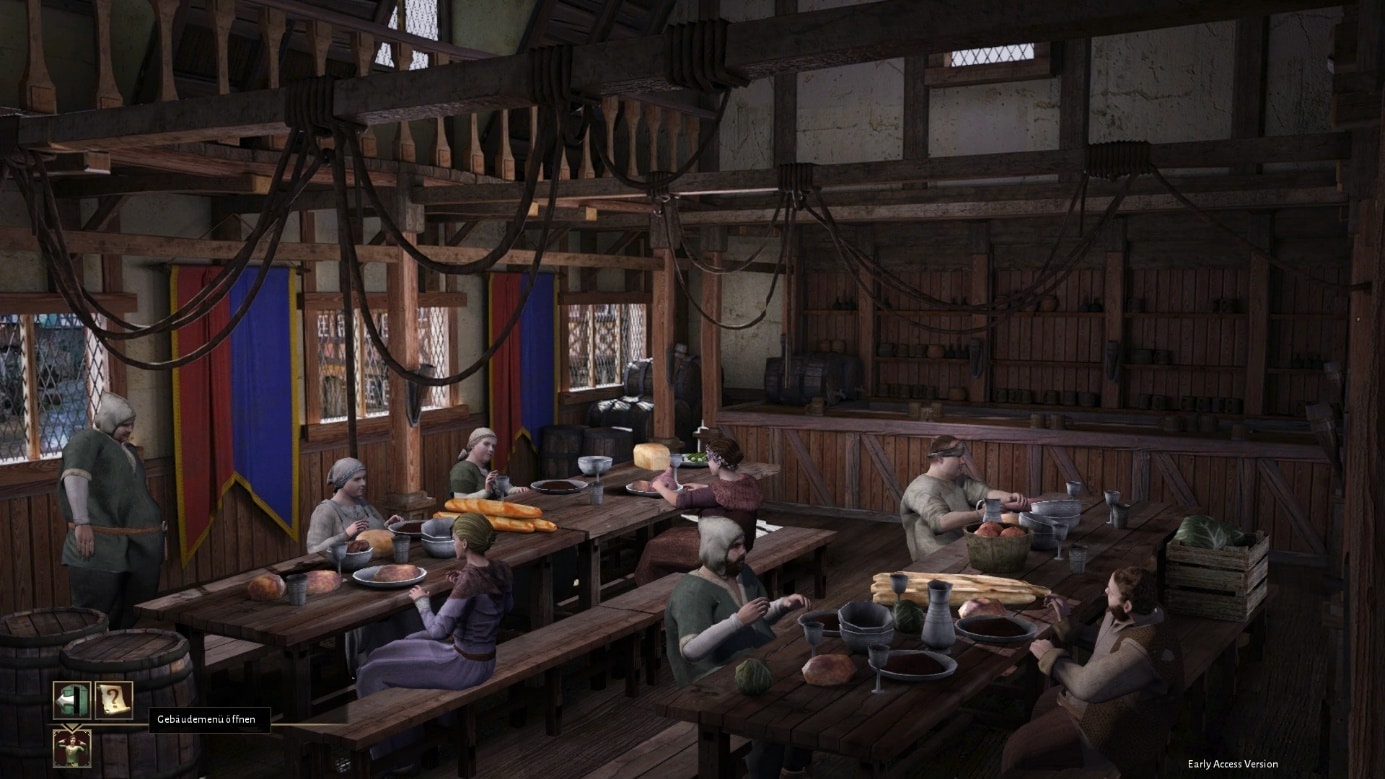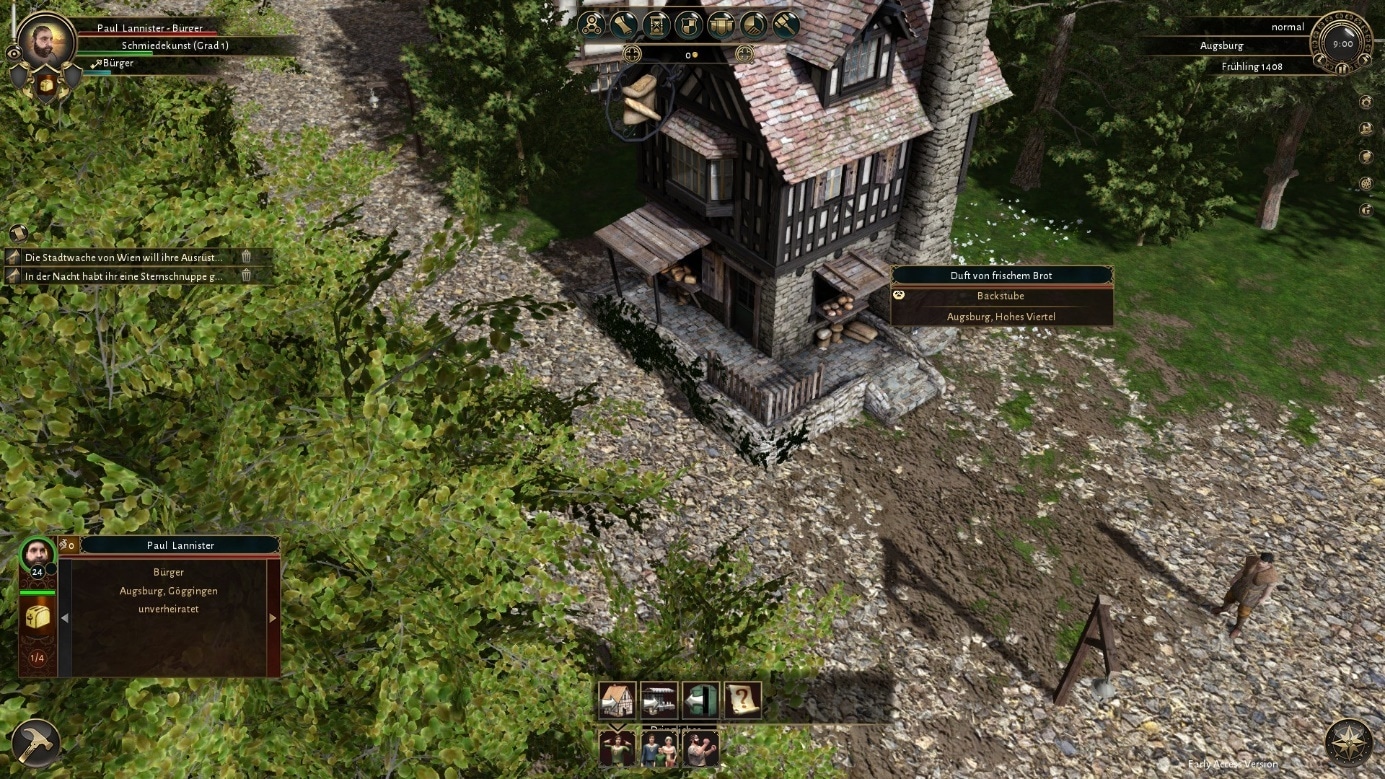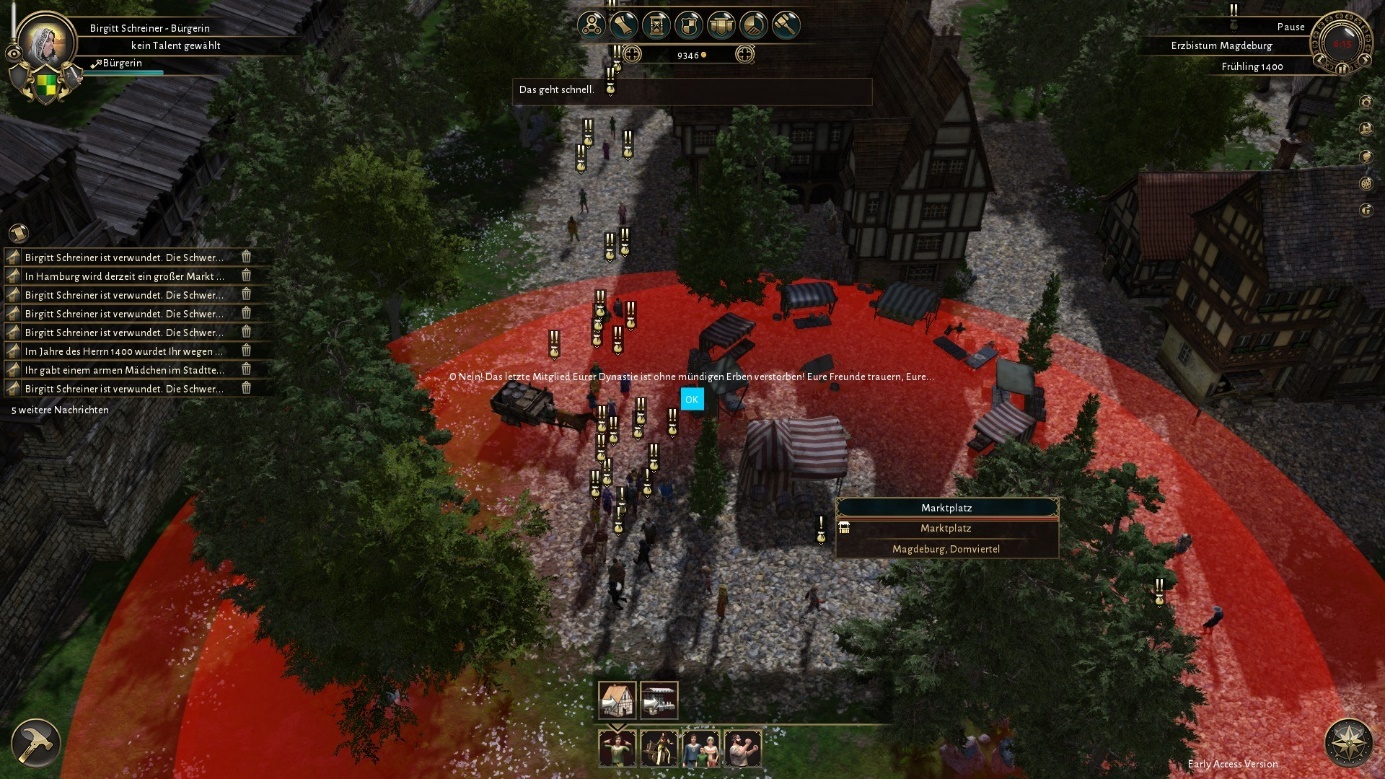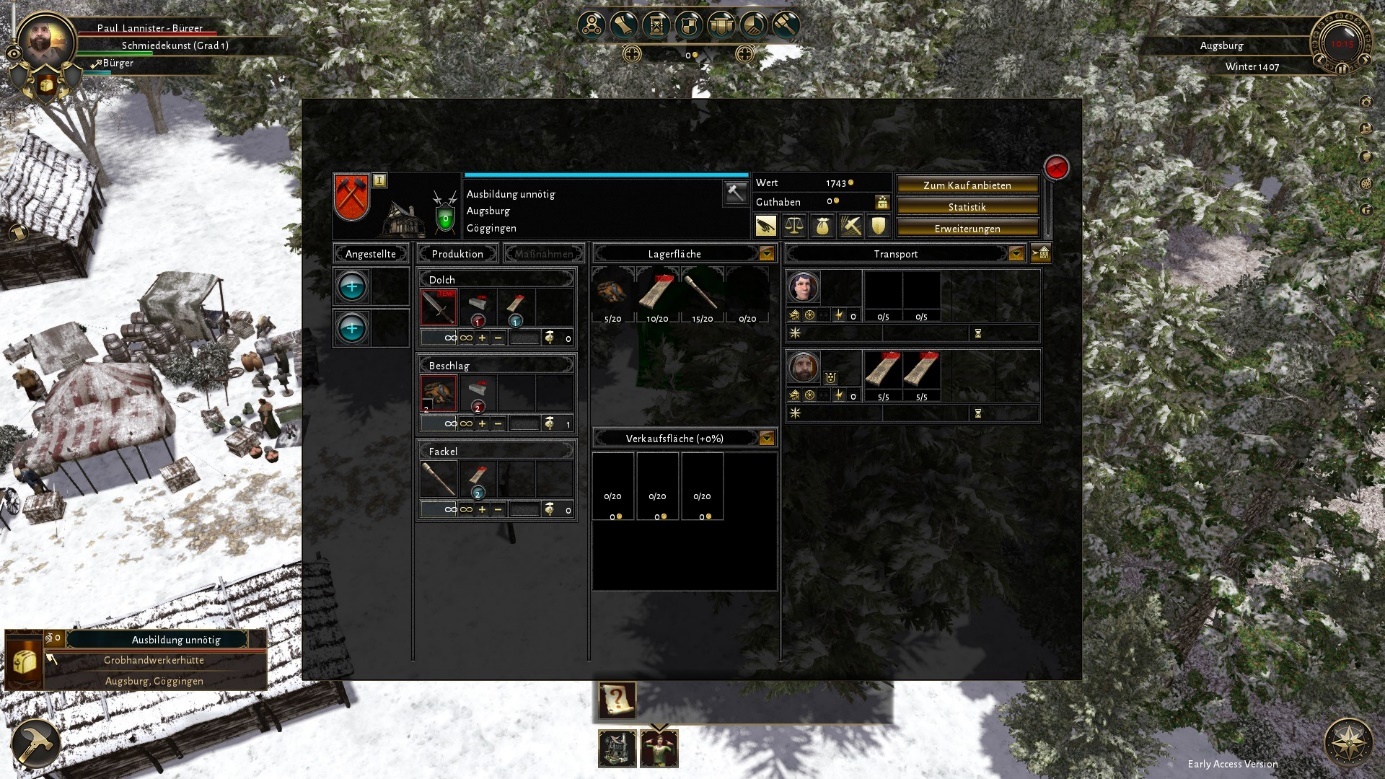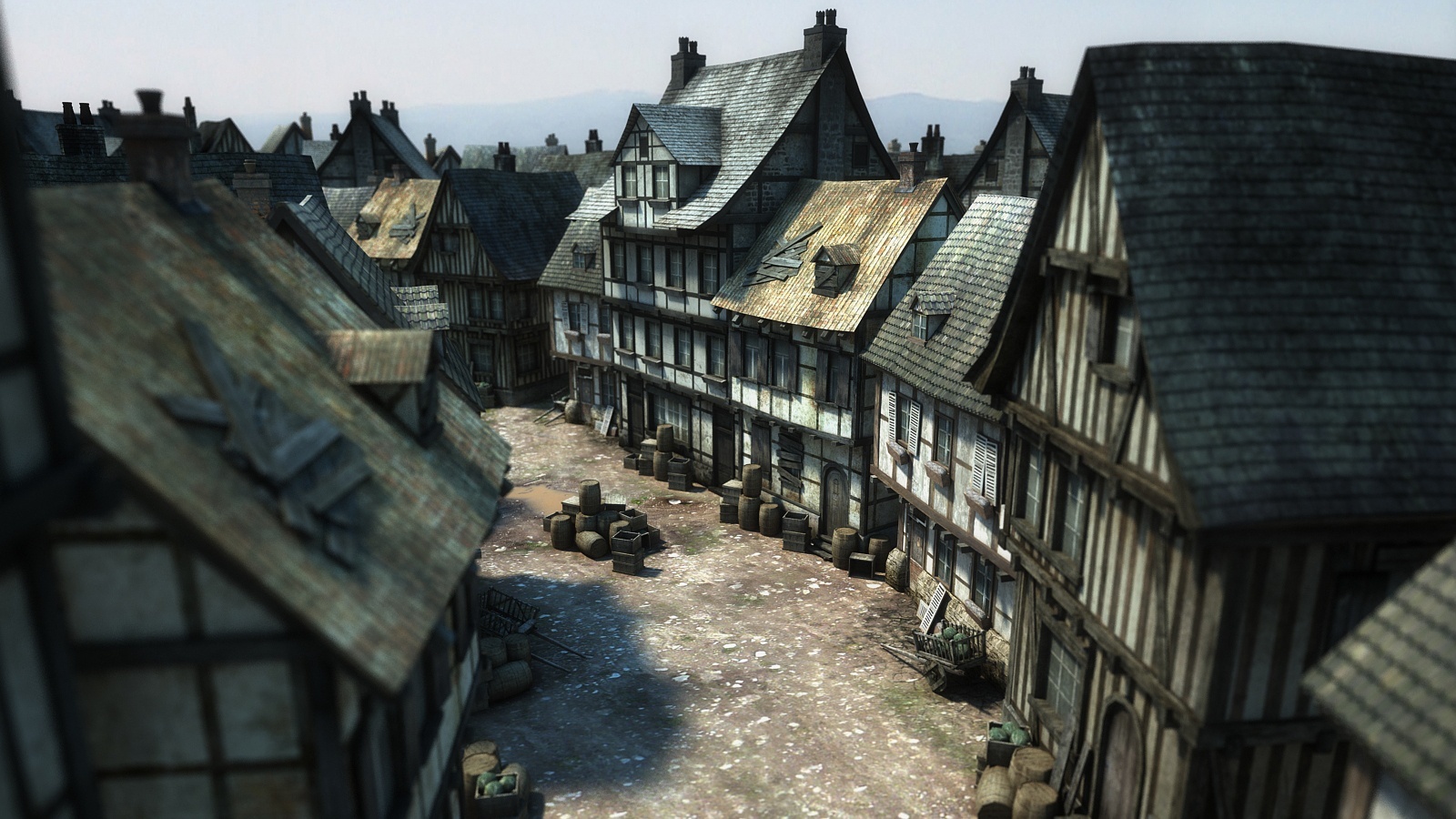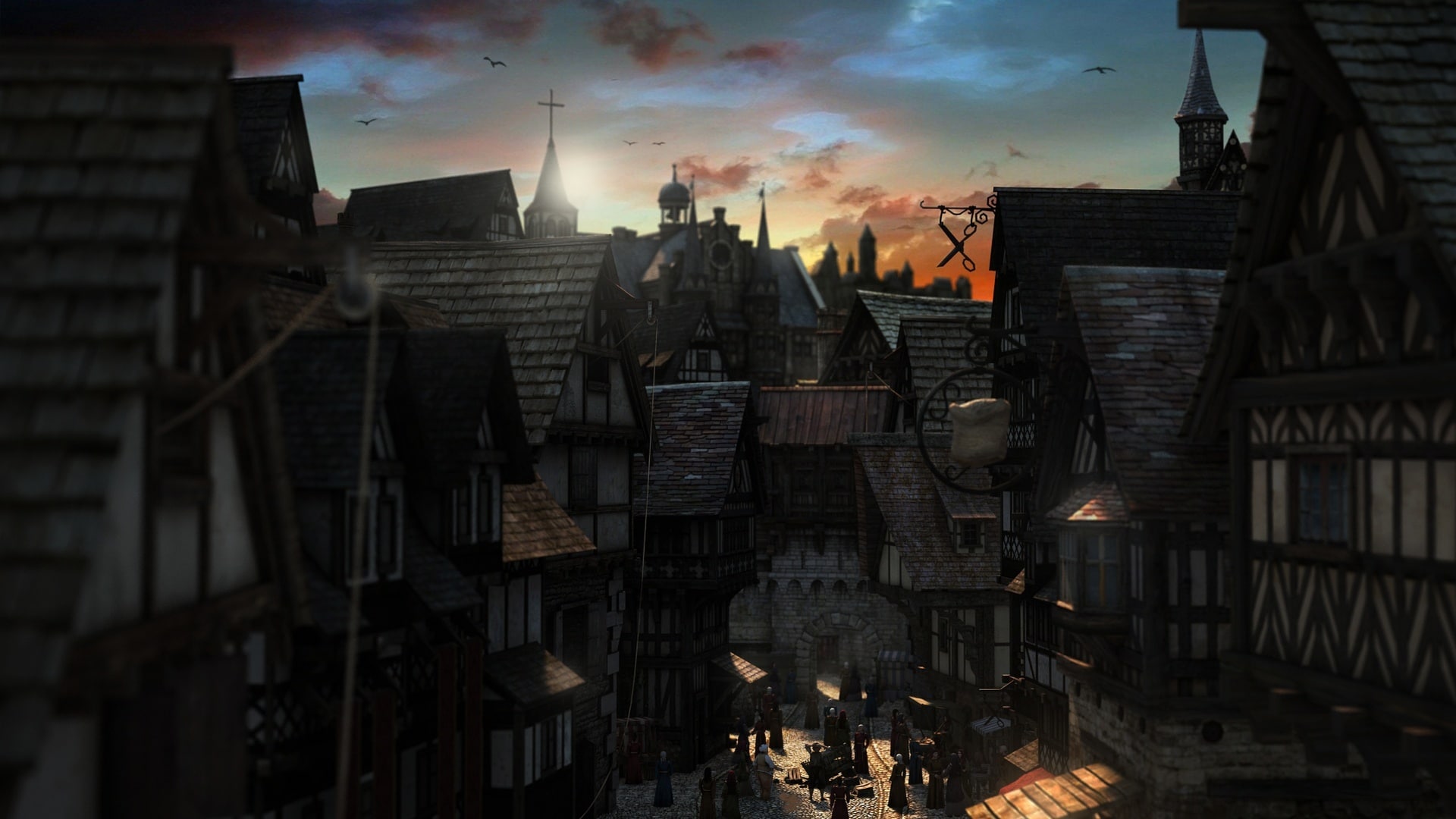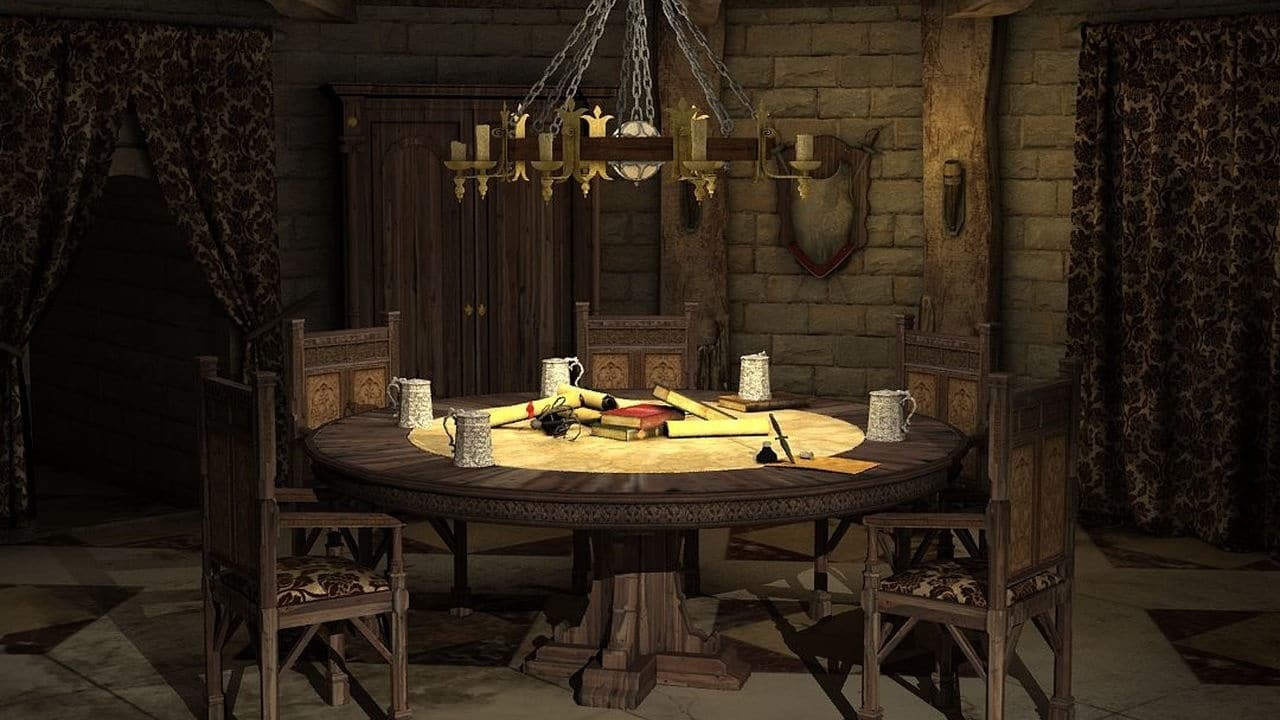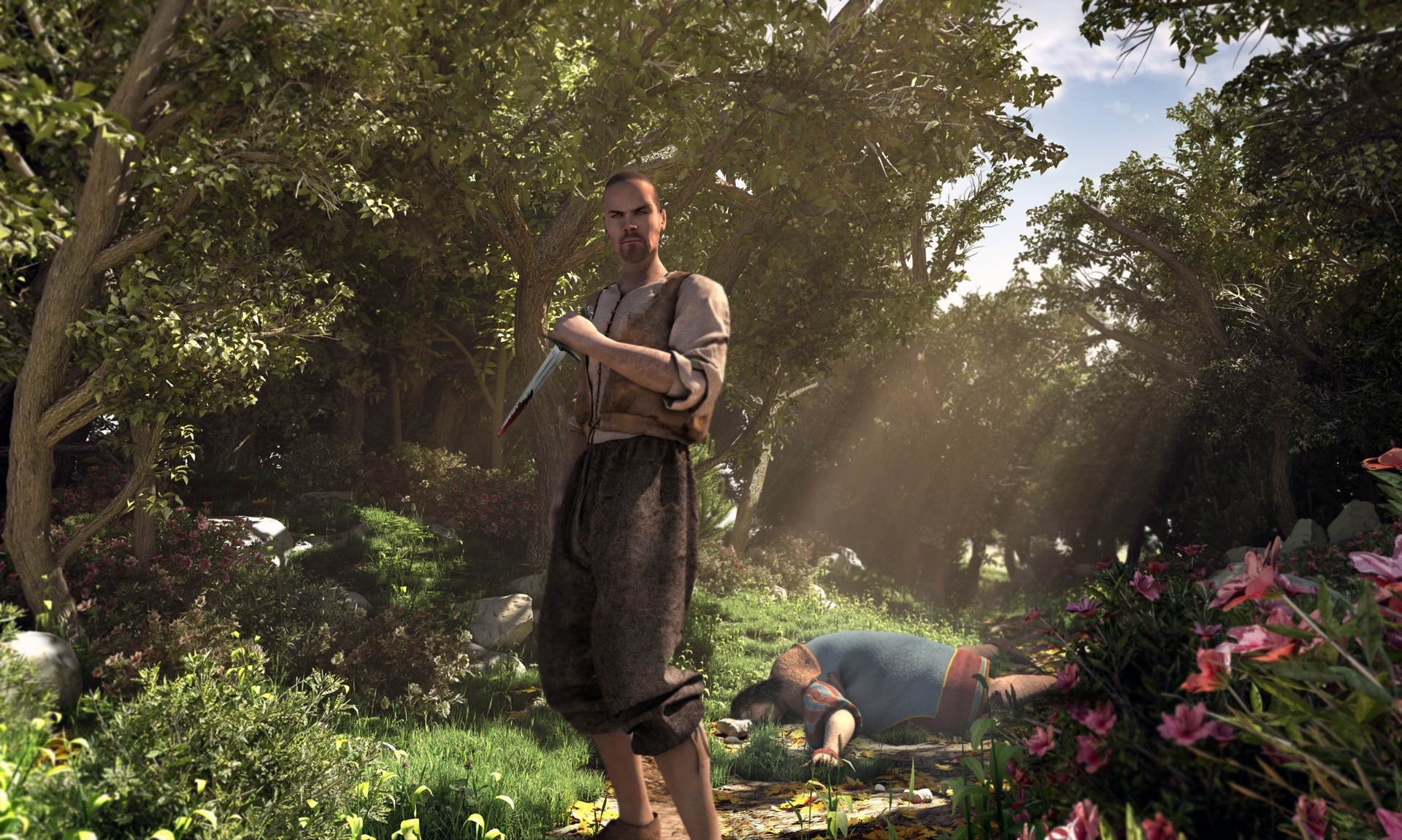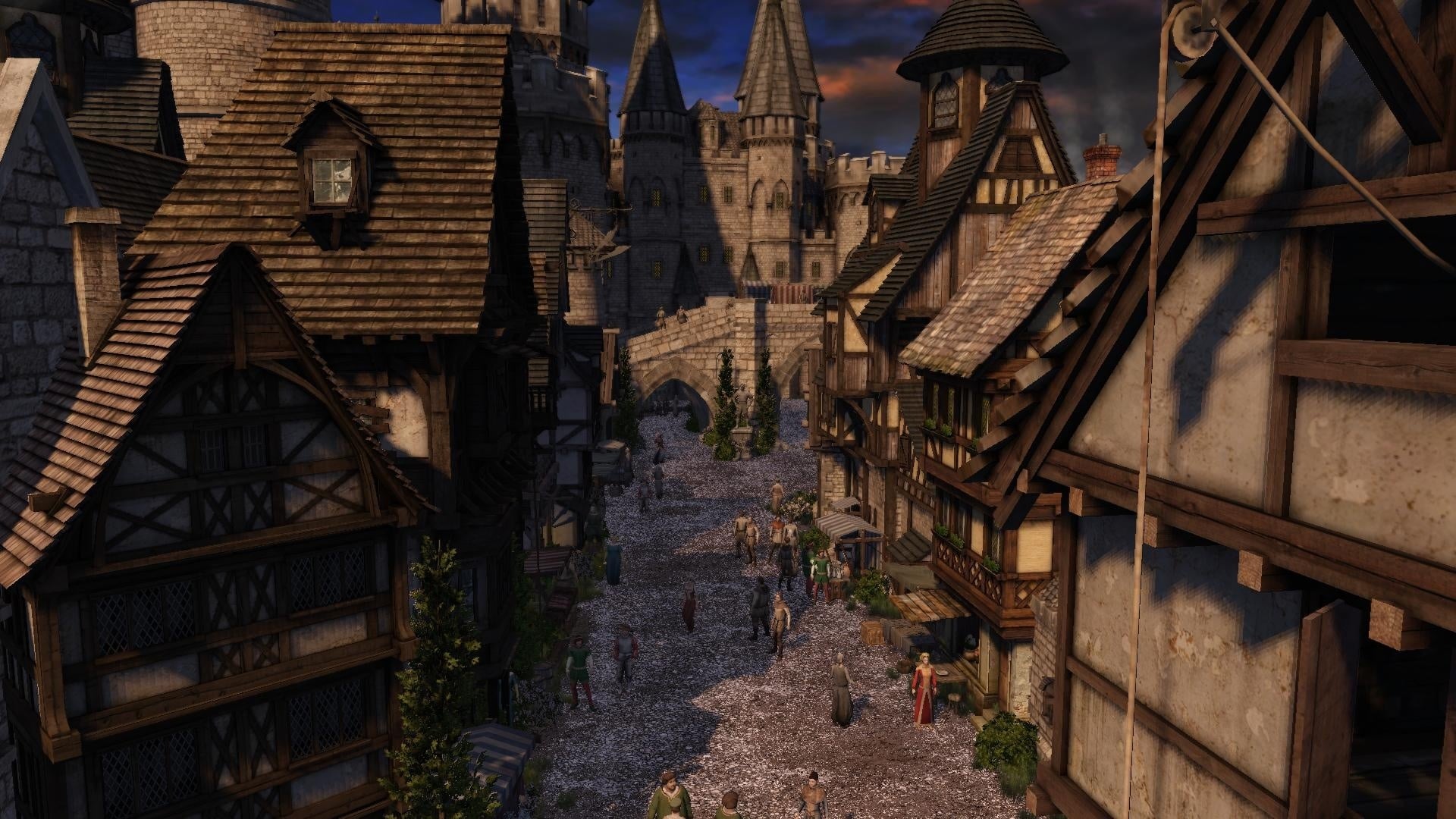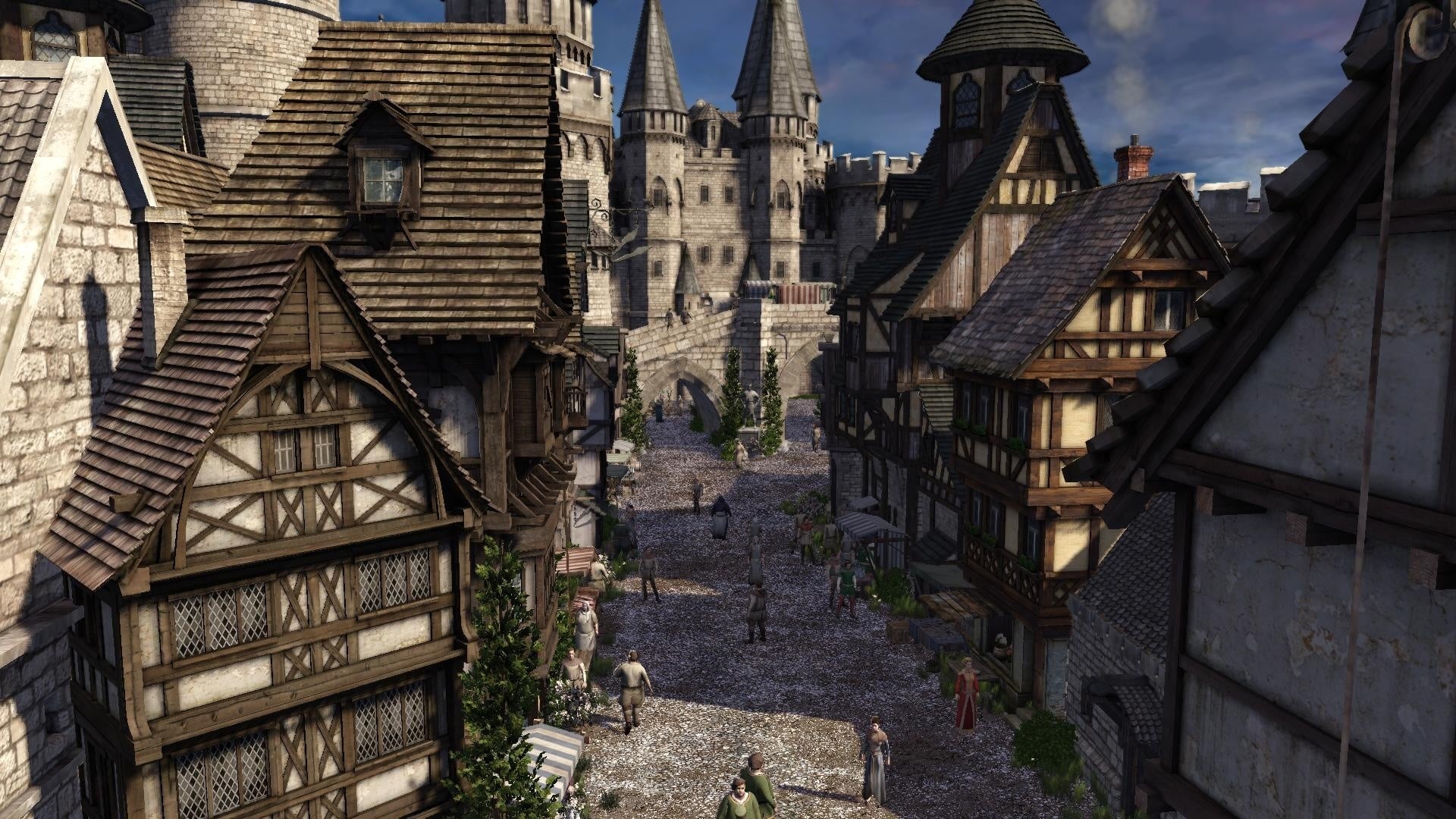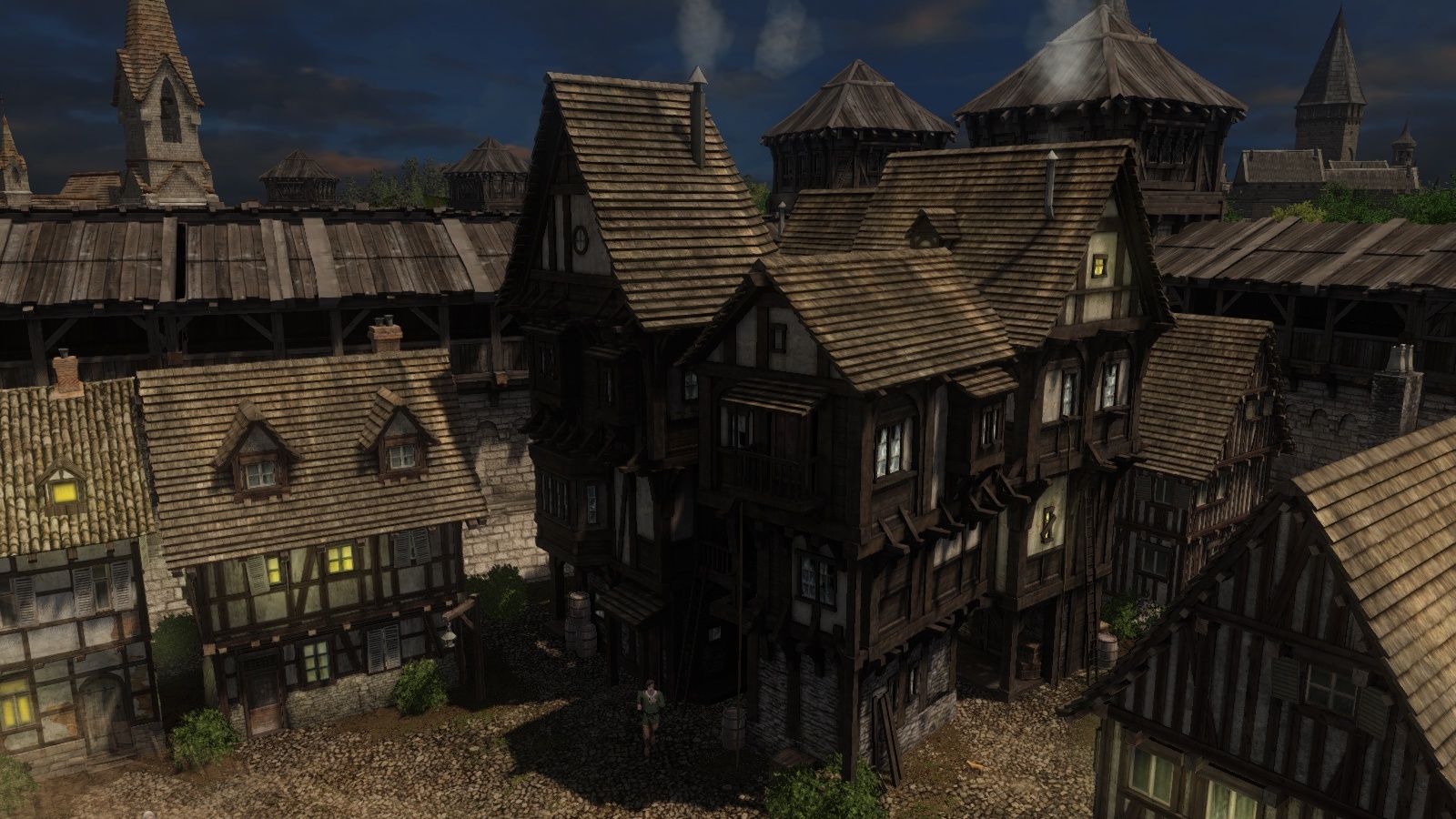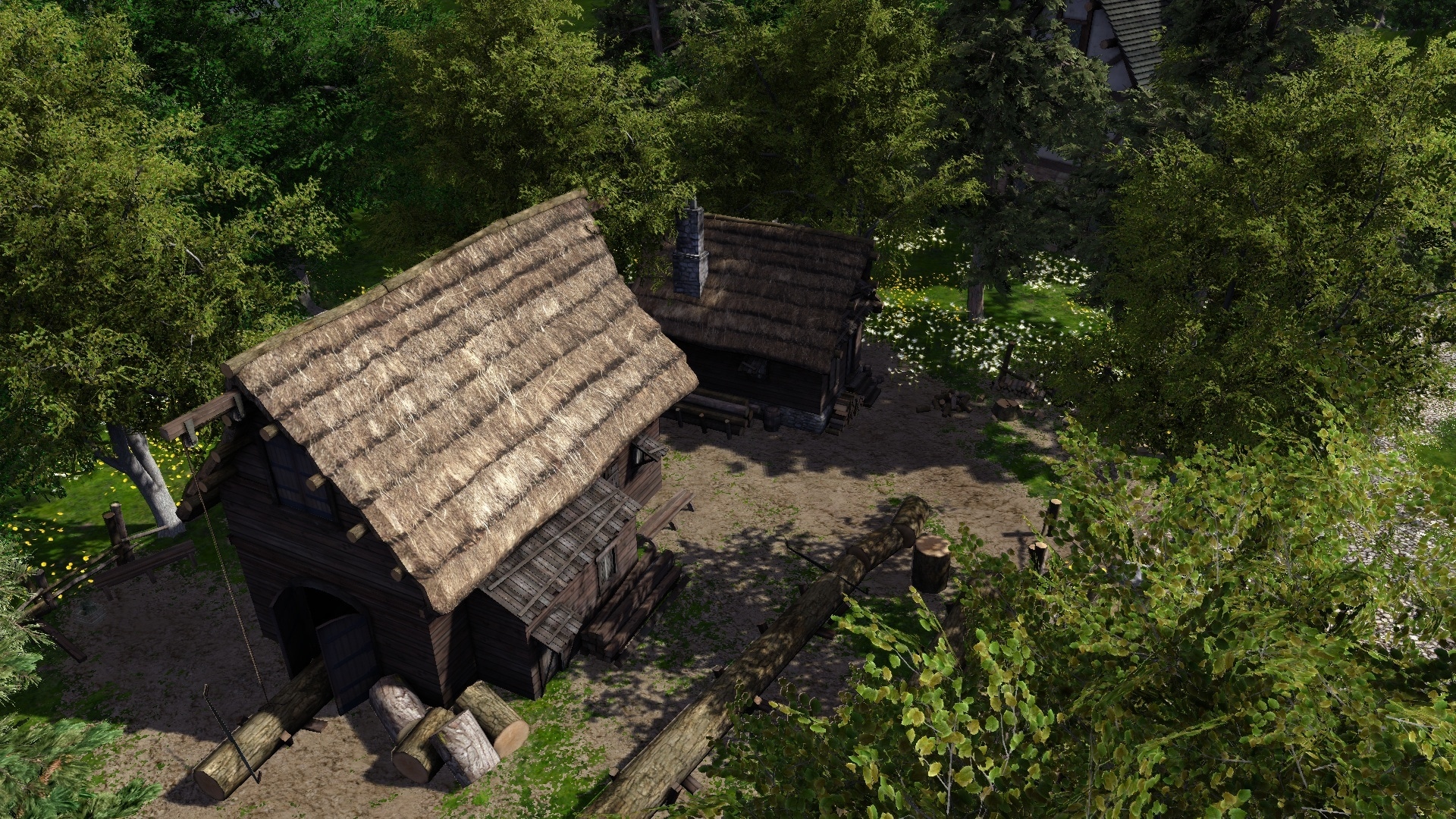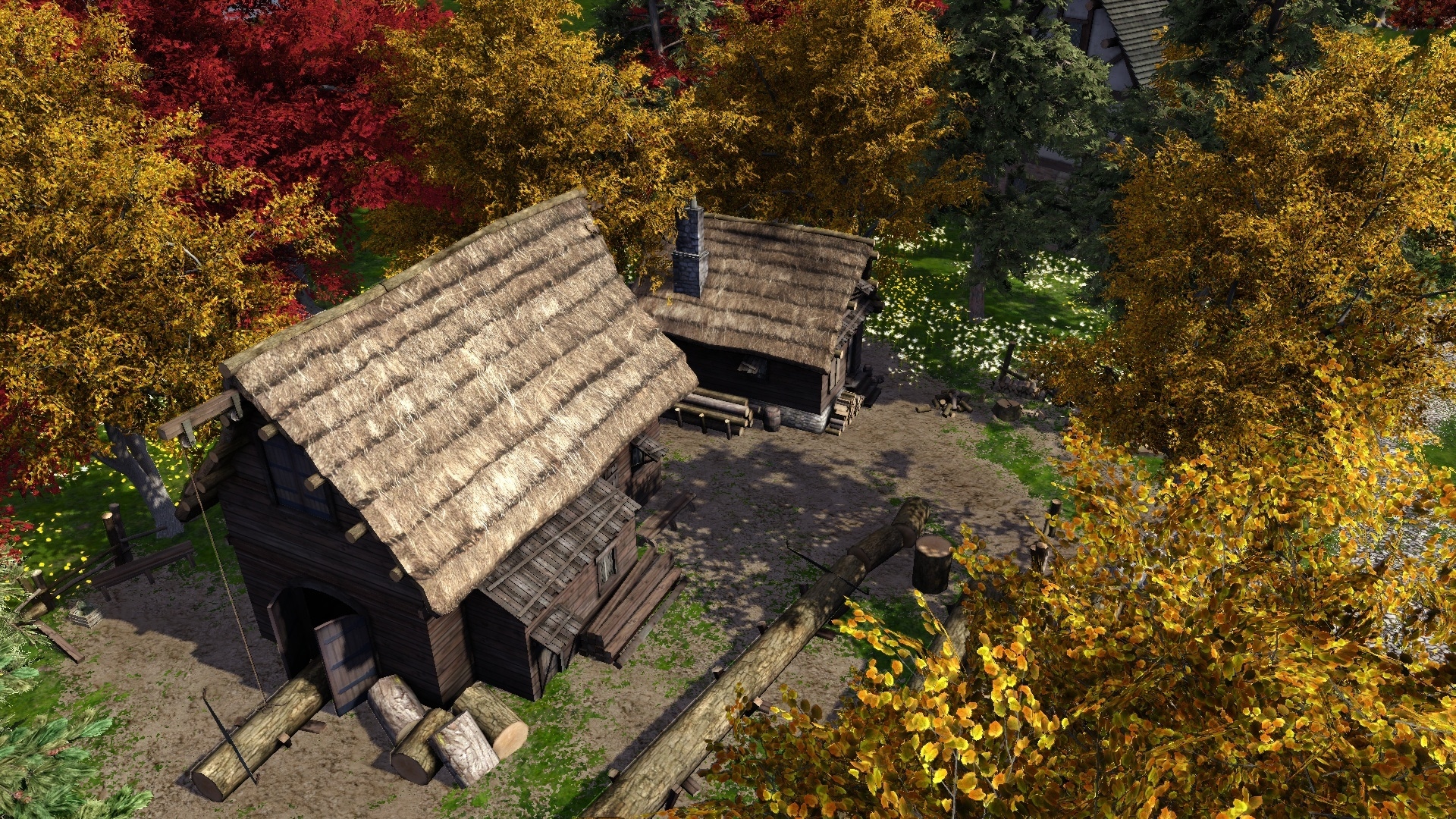The Guild 3 stewed in Early Access hell on Steam for almost five years. The release of version 1.0 of the business simulation now surprises in every way.
Gamers, dear players, it is announced that The Guild 3 is (finally) here! And this can very well be called a surprise, if we remember the dark backstory of this hybrid of role-playing game and economic simulation.
Announced back in 2014, developer Golem Labs launched an Early Access version in September 2017 that was so plagued by bugs that every exterminator (and every gamer) quickly ran for the hills. Publisher THQ Nordic had to act: While Golem Labs was sent on “new adventures“, replacement studio Purple Lamp was now given the brave task of saving the game.
Four years later, on 14 June 2022, now comes the full-fledged release that was hardly thought possible. To do the game justice despite all the happenings and apprehensions, GlobalESportNews sent probably the fairest tester – namely a complete blank slate in the Guild universe whose judgement could not be influenced by unprocessed Early Access nightmares or even nostalgically glorified comparisons with the predecessors.
And I tell you: The Guild 3 is finished and unique, unwieldy and unintentionally funny.
The Sims in the Middle Ages, only different
Instead of ruling a kingdom from above like in other strategy games, my self-created character in The Guild 3 has to work hard for it and win through against other AI or player families. To do this, I take turns managing economic buildings while at the same time shaping the everyday life of my guild master-to-be.
And where does this steep path to power usually begin? That’s right, in the dirt, with the sale of potatoes, berries or iron, depending on which skills and industry I have chosen at the beginning.
Once enough capable people are working for my business and the shop is making its first profits, it’s time to do something about building my dynasty and finding a suitable spouse for it. And that all happened much more quickly in the Middle Ages than it does today!
After a few compliments, my character finds himself in front of the marriage altar and shortly afterwards in bed to produce the descendant, who a few ingame days later can diligently help out at the market. Good boy, ambitious like his father!
After a few hours of play, I have risen several ranks, own a few developed and flourishing businesses and hold a valuable office in the town council – from which rival families want to vote me out every minute.
In passing, I hear that my son has given up his inheritance to become a thief two streets away. Meanwhile, my daughter doesn’t have much luck finding a partner, my wife wins a fight in the street for the fourth time.
Out of boredom, I instigate a feud against another family and kill their unguarded head next to his apartment building. The next morning, when his successor steps into the street, he doesn’t make a face and greets me.
Um… you’re welcome?
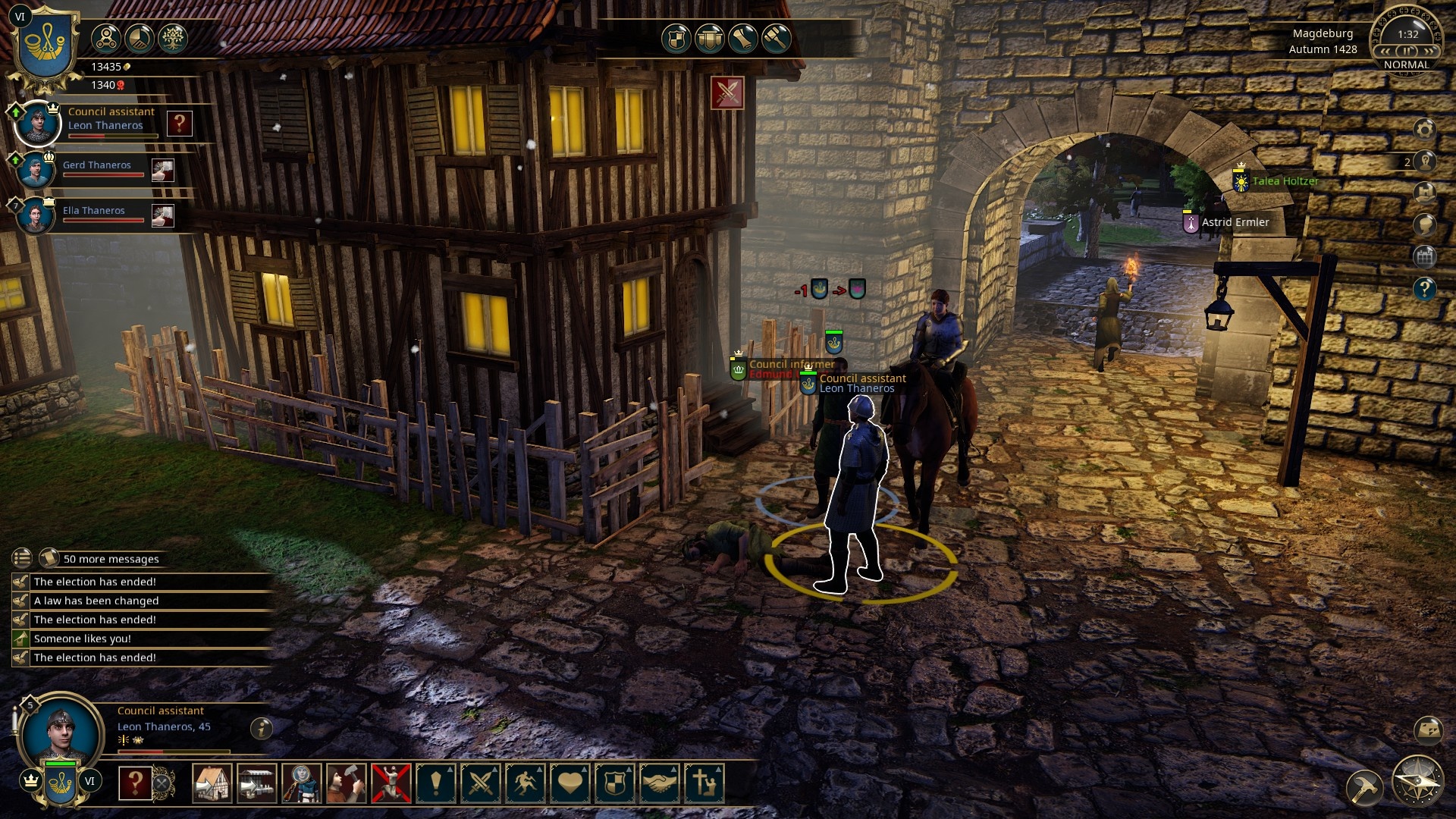
Much bustle, little control, but laughs guaranteed
It’s not easy to rate The Guild 3 or say exactly how I feel when I play it. The Early Access nightmare is over (aside from sometimes clipping people and carriages together), but a masterpiece doesn’t emerge here either
Seldom is The Guild 3 challenging, often it is very relaxing, partly boring and apart from that the whole time is unintentionally funny due to the many curious situations.
However – those looking for such role-playing economic simulations and very neighbourly power struggles will find no alternative. The Guild, both the series and the third part, is unique, but also uniquely special.
You can feel this especially when you look at the gameplay areas in detail. Let me say this in advance: If you don’t want to watch the grass of the rather beautiful game world grow, you should play The Guild 3 at four times the normal speed, as all processes take a very long time and nothing else happens. Which is not to say that you can keep track of everything at any speed, given all the messages and events that pop up.
The economic system itself turns out to be surprisingly complex at first glance, which is why newcomers should definitely take advantage of the tutorial. Once you have mastered the initial struggle with the numbers and the clicking in the menus, you feel like the medieval Wolf of Wallstreet and start improving and figuring things out.
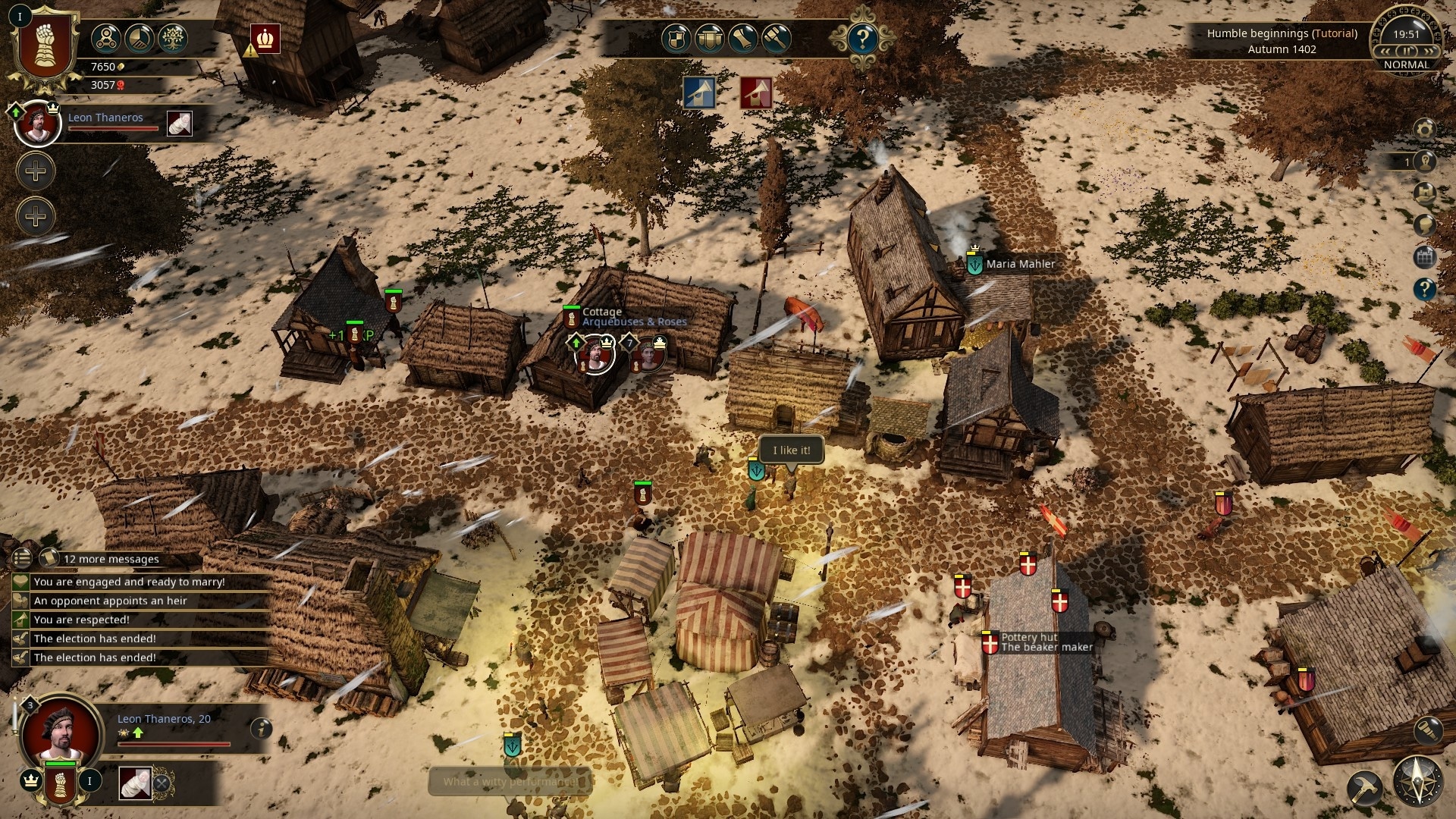
However, the area can also be completely ignored at some point due to all the automated processes. The wealthy game character then looks around desperately for work, but after the wedding there is not much left for him apart from motivational speeches and election advertising – except to move up socially by purchase now and then. And if he is lucky, he falls ill once in a while and can visit the local doctor.
The entire life outside of the economy is very functional and does not seem immersive in any way, considering that you are supposed to be closer to the medieval events. Even the third-person perspective doesn’t change this when I visit my character at home and watch her washing herself with invisible water. The game world feels alive thanks to the many characters, happenings and weather effects, but hardly anything in it really affects the economy in the menus – or is difficult to follow.
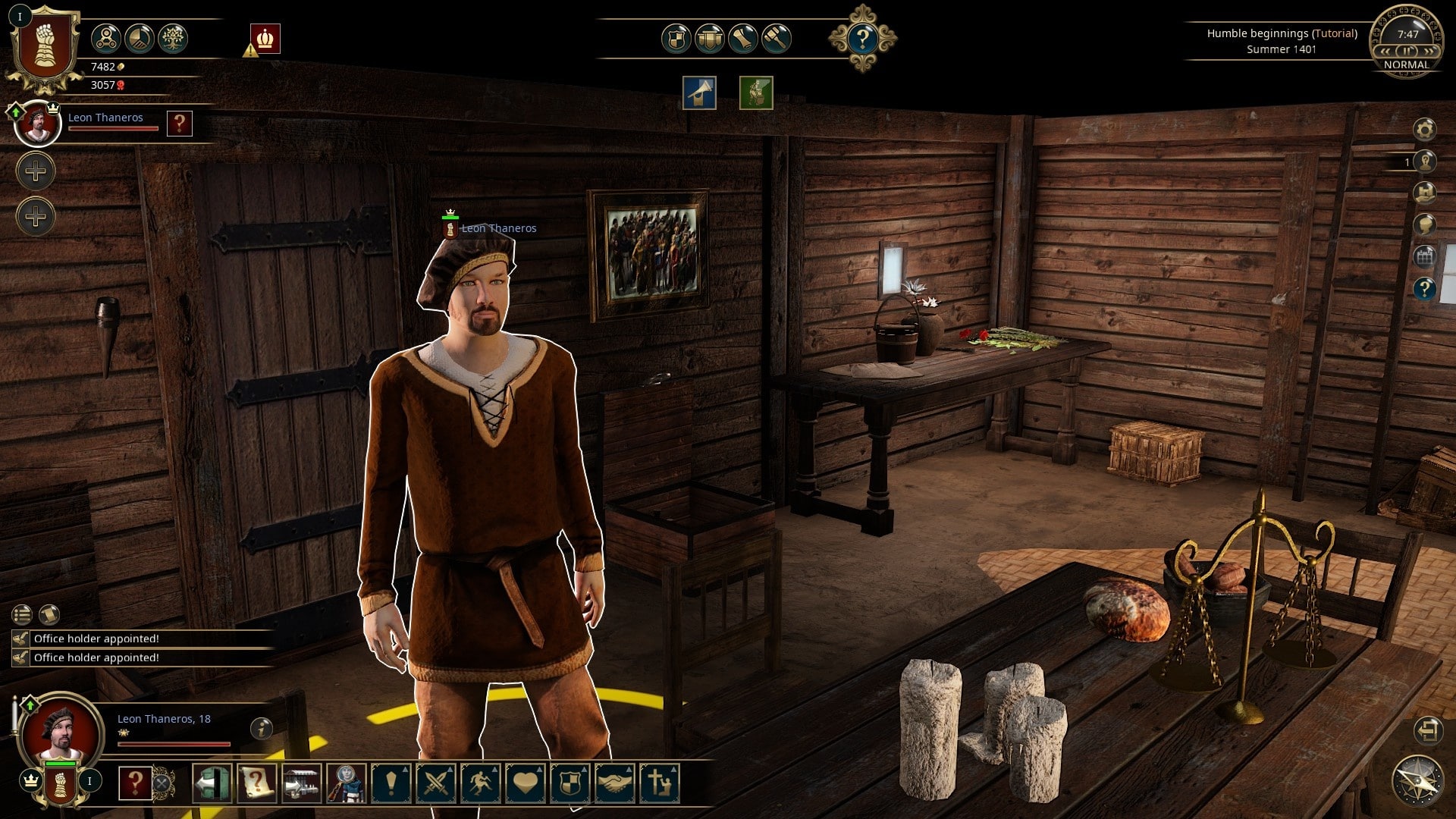
The Guild 3 evokes the fantasy of being able to do anything, buy up an entire city or overthrow an opposing family, but when it comes to executing your plans, things get tricky.
How is it feasible and is it feasible at all? Particularly clever manoeuvres rarely succeed or take an extremely long time. The best way often remains to just keep growing and eventually get elected supreme ruler.
My greatest hope is that the multiplayer with dozens of other players will bring a large portion of chaos and blood into the peace and joy skirmish. Since we found hardly any bold comrades-in-arms shortly before release, we were unfortunately unable to check out the multiplayer for you. In anticipation of the fact that the servers will probably not be stormed en masse at release, we recommend that you arrange your matches with other players via the Guild 3 Discord or other platforms.
Editor’s verdict
The game idea still appeals to me, even though I rarely get to play The Guild 3 the way I would like to. Most of the time I’m busy waiting and trying things out. Besides, a lot of it only happens on the number level, very little of it is actually represented in the game. If I didn’t have this dream of a big guild – and the many fun moments – I would probably have thrown in the towel long ago. With everything I’ve written, you might be confused as to whether I suffered or had fun while playing.
Kind of both.
In a strange way, The Guild 3 is entertaining and relaxing at the same time – and yet I still find myself making grand plans and wondering how it can be done. Time and again, however, I realise that I’m not playing the game I think I’m playing.
There is no real alternative for what The Guild 3 offers, even if it doesn’t do it well. But my hunger for it is piqued. Does it fail because of the technical implementation? I find many choices, like the automated economy, more than questionable. Why take control away from me when I would love to have influence over such details? And why make the overthrow of a hostile family so unclever?
Knowing that two developers worked on this game, I am not at all surprised at this strange composition. The Early Access phase is over, but it doesn’t really feel finished – perfected – yet. Will it be at some point? If so, I look forward to a retest. Unless Purple Lamp calls this the finished version. In that case, I’ll silently move on with my market cart.

